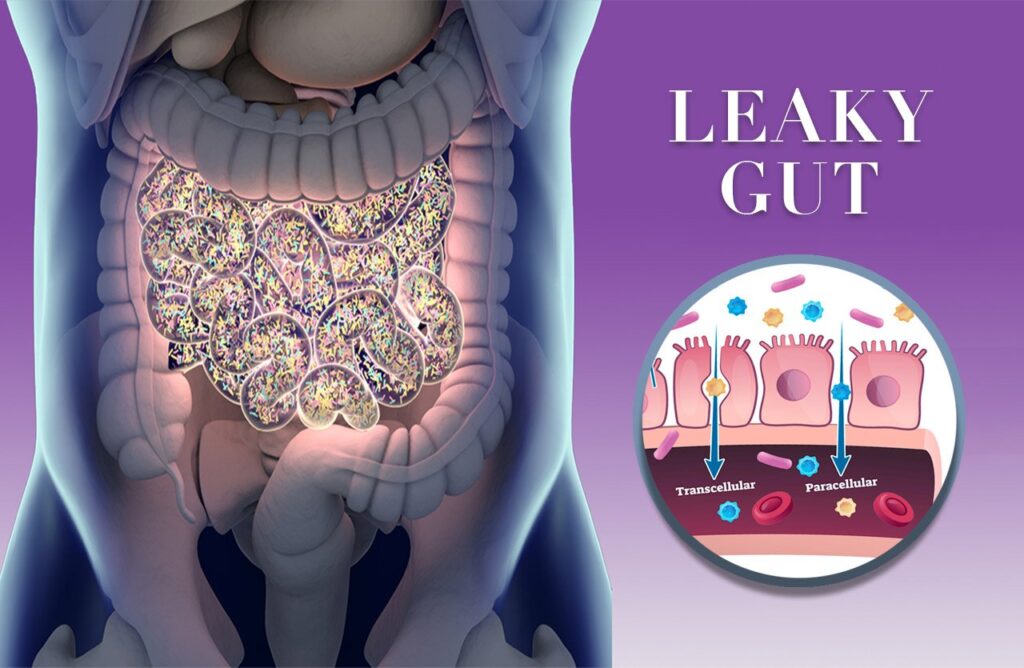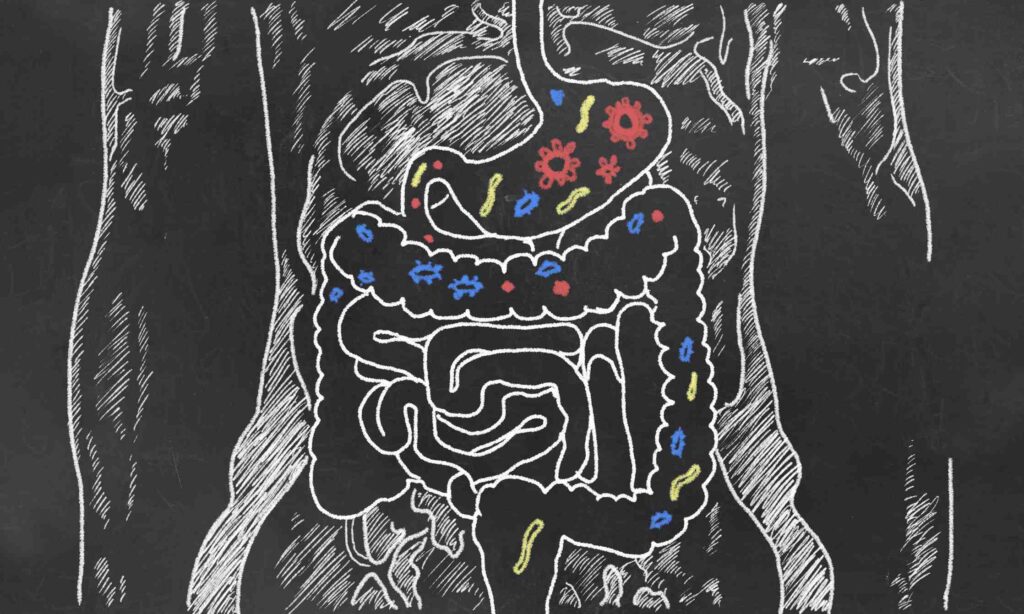Leaky gut syndrome, a term often thrown around in health and wellness circles, remains a controversial and hypothetical condition that lacks recognition as a formal medical diagnosis.
This article aims to provide an in-depth understanding of leaky gut syndrome, its potential associations with various diseases, symptoms, causes, and available management and treatment strategies based on existing scientific knowledge.

Table of Contents
What is Leaky Gut Syndrome?
Leaky gut syndrome is rooted in the concept of increased intestinal permeability, a condition where the mucous lining of the intestines allows the passage of larger molecules, potentially harmful, into the bloodstream. While it is acknowledged that some individuals exhibit increased intestinal permeability, classifying it as an independent medical condition is yet to gain consensus within the medical community.
Disease Associations with Leaky Gut
Known Disease Associations:
- Inflammatory bowel disease (IBD)
- Celiac disease
Possible Disease Associations:
- Metabolic disorders (e.g., obesity, diabetes)
- Arthritis
- Chronic fatigue syndrome
- Asthma
- Fibromyalgia
The evidence connecting leaky gut to these conditions is speculative, and researchers emphasize that, in many cases, increased intestinal permeability is viewed as a symptom rather than a causative factor.
Check Out: Unveiling the World’s Top 5 Gut Health Doctors
Who is Affected by Intestinal Permeability?
The erosion of the intestinal lining leading to increased permeability is often associated with chronic diseases, prolonged drug use, alcohol abuse, or radiation therapy. Additionally, everyday factors like diet and stress may contribute to inflammation in the gut lining, causing gastrointestinal symptoms.
Effects of Leaky Gut on the Body
Erosion of Intestinal Lining
Constant assault on the gut lining may result in erosion, impacting digestion, immunity, and sensitivity to pain in the intestines. Conditions like peptic ulcer disease and small intestinal bacterial overgrowth (SIBO) exemplify the consequences of compromised intestinal mucosa.
Intestinal Permeability
Individuals with increased intestinal permeability may experience symptoms such as abdominal pain, food sensitivities, bloating, and indigestion. However, distinguishing these symptoms from the underlying inflammation that precedes permeability remains challenging.

Symptoms and Causes
Causes of Leaky Gut
The most direct causes of intestinal permeability include:
- Chronic inflammatory states (e.g., IBD, celiac disease)
- Diseases causing intestinal injury (e.g., HIV/AIDS)
- Chemotherapy and radiation therapies
- Chronic overuse of alcohol or NSAIDs
- Food allergies triggering immune responses
Symptoms of Leaky Gut
While there are no direct symptoms associated with intestinal permeability, individuals may experience symptoms resulting from injury to the intestinal lining. These include a burning feeling of ulceration, painful indigestion, diarrhea, gas and bloating, and low energy.
Diagnosis and Tests
There is no standard test for measuring intestinal permeability directly. However, ongoing clinical research explores several tests, including urine tests, blood tests for biomarkers, tissue biopsy, and confocal endomicroscopy, to detect evidence of intestinal permeability in patients.
Also See: A Comprehensive Guide to Improving Your Digestive Well-being
Management and Treatment
The only known cure for a leaky gut involves treating the underlying condition causing it. Treatments for associated diseases like IBD and celiac disease have shown success in repairing the intestinal lining. Independent treatments targeting the intestinal lining have not demonstrated efficacy.
Gut Care Strategies
Various therapeutic approaches aim to enhance gut health, including:
- Probiotics: Tested for their potential to restore gut barrier function.
- Prebiotics: Plant fibers promoting the growth of beneficial bacteria.
- Dietary modifications: Reduction of fats and sugars, balanced nutrition, and low FODMAP diets.
- Nutritional support: Vitamins D and L-glutamine for gut lining repair.

In summary, the article explores leaky gut syndrome as a theoretical concept, acknowledging its association with certain diseases but cautioning against its standalone characterization. The emphasis is on treating underlying conditions to address intestinal permeability, with recommendations for probiotics, prebiotics, dietary adjustments, and nutritional support.
The article encourages a discerning approach, steering clear of the catch-all use of “leaky gut syndrome” for general indigestion. Readers are urged to prioritize lifestyle factors and seek professional guidance for accurate diagnosis and tailored care.


